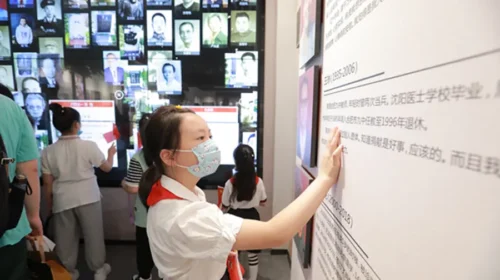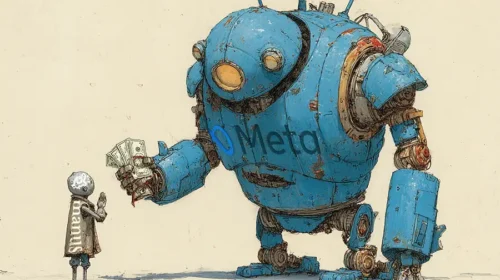The business of ‘Knowing You’: AI companions fuel the emotion economy

Artificial intelligence is learning to ‘understand’ people to create a new wave of AI companionship that’s quietly reshaping how people connect with technology and themselves
By Lee Shih Ta
In the fast-diversifying world of generative AI, emotional companionship has emerged as one of the fastest-growing applications. A Harvard Business Review survey found that “emotional and psychological companionship” has become one of the most common use cases for generative AI — surpassing text generation and translation — signaling that expectations for technology are shifting from “help me work” to “understand me, be with me.”
Imagine this: late at night, the person chatting or watching a show with you may not be human, but an AI creation that understands you better than anyone else.
In the U.S., AI companionship is dominated by “virtual personalities.” Early pioneer Replika has attracted over 30 million users, nearly half of whom have set their AI as a “romantic partner.” Its successor Character.AI lets users create their own characters and talk to celebrity-like AIs, reaching over 100 million interactions in a single year. The latest sensation, AI Bro, positions itself as a “digital friend” that browses Tinder or social media alongside users, commenting in real time. Within weeks of the launch, it landed in the top 10 on the U.S. Apple App Store with over 70,000 daily downloads.
In China, the AI companionship market has taken on a more grounded and practical form. The viral app DouDou Companion combines “AI gameplay + chat.” Users can summon a voice-based AI teammate for the popular “Honor of Kings” online game, or talk with it at night for stories and casual conversation. The company told media outlets that its monthly active users has surpassed 2 million and that it plans to expand overseas. Its model is built on MiniMax technology, fine-tuned with Alibaba’s (BABA.US; 9988.HK) Tongyi Qianwen (Qwen) large language model.
Often dubbed China’s “AI personality factory,” MiniMax is the developer behind the popular voice-chat app Talkie, which lets users create custom AI characters for emotional interaction. The platform now has over 100 million global users, including 11 million monthly active users, with females making up about 48%. Founded by former SenseTime executive Yan Junjie, MiniMax has raised funds in multiple rounds, with backers including Tencent (0700.HK), Alibaba and HongShan, formerly known as Sequoia China. The Wall Street Journal reported that the company has confidentially filed for a Hong Kong IPO, targeting a listing later this year.
Paying to “be understood”
China’s AI companion market moves quickly — from model development to app launch, the typical cycle averages just three months. According to QuestMobile, user activity peaks at night between 10 p.m. and 2 a.m., driven mainly by young adults aged 18 to 35. They may not all be lonely, but they’re willing to pay for an AI that “understands them.”
A report by Business Research Insights estimated the global AI companion market will be worth $366.7 billion this year and projected it will rise to $972.1 billion by 2035, representing 36.6% annual growth.
Such rapid growth has raised ethical and regulatory concerns. In late 2024, China’s Ministry of Industry and Information Technology (MIIT) and the Cyberspace Administration of China (CAC) jointly issued guidelines that, for the first time, explicitly included “virtual characters and emotional companionship” under their supervision. The guidelines state platforms must prevent underage usage, limit hyper-realistic voice synthesis, and strengthen data security.
Yet regulation has not dampened innovation. Instead, it’s steering the industry toward longer-term applications. Some AI companies are collaborating with mental health platforms to launch “emotional-support AI coaches,” while others plan to integrate AI companions into smart speakers, home robots, and in-car voice systems, bringing companionship from screens into real life.
As humans grow accustomed to conversing, confiding, and coexisting with AI, companionship is becoming a new frontier in technology. This emerging intersection of algorithms and emotion is redefining what it means to “understand.” Perhaps it doesn’t mean machines know us better, but rather that, through them, we are learning more about ourselves.
Lee Shih Ta is an editor at Bamboo Works.
You can contact him at shihtalee@thebambooworks.com
To subscribe to Bamboo Works weekly free newsletter, click here






